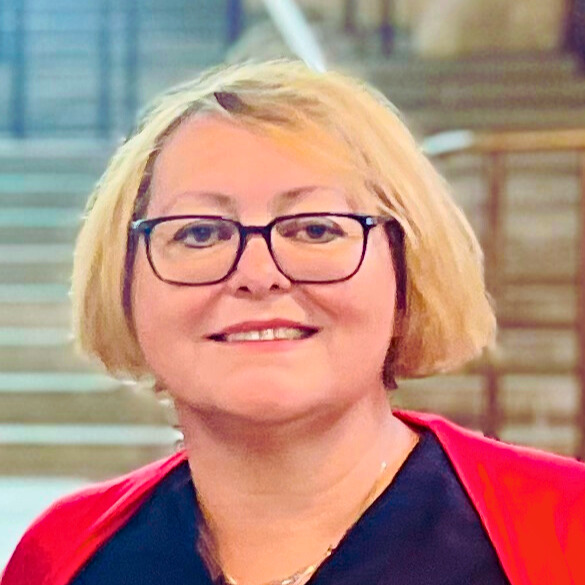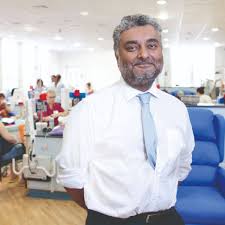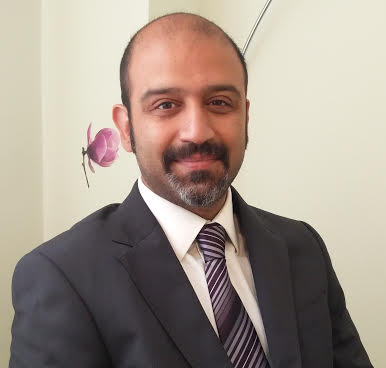
I never imagined I’d start a charity! I had a satisfying career in the field of Information Technology & life was going well for me. But being diagnosed with Stage 4 ROS1+ lung cancer—at the age of 38, as a healthy, non-smoking woman—changed everything. It shook my world and opened my eyes to how overlooked this rare subtype of lung cancer truly is.
In the UK, ROS1+ cancer is underfunded and rarely understood—even within the medical community. Treatment options are limited. Awareness is almost non-existent. And yet, the people living with this cancer are vibrant, resilient, and deserving of hope, care, and a future.
That’s why I founded ROS1ders UK Charity—to break the silence surrounding this illness, to create a supportive community, and to demand research, better treatments, and equal attention for ROS1+ patients across the UK.
Thank you for visiting our website. Simply by being here, you’re helping us move one step closer to change.

Hi, I'm Julia. I was diagnosed with stage iv NSCLC in 2016 and diagnosed as ROS1in 2018. I was 45 and a mum to three young children. They are now thriving young adults and I'm extremely fortunate to have seen them grow. I live a normal live and hospital visits are much further apart as I'm a tki and have minimal impact on my family life. We've had a few ups and downs like last year when the cancer spread to the leptomeningeal area of the brain but we got through it together and thankfully my oncologist got me lorlatinib on compassionate grounds. I'm also a trustee for Everybreath lung cancer support which is one of the only support groups in the south east. It has helped me become the person I am today and I do feel I have a good knowledge and understanding to help newly diagnosed patients that there is hope. Going forward with ROS1ders, I hope we can achieve more awareness, give support and get more treatment options for future ROS1ders.

Professor Popat is a Consultant Medical Oncologist at The Royal Marsden, Professor of Thoracic Oncology at the Institute of Cancer Research, and is an internationally recognized expert in the treatment of lung cancer, mesothelioma and cancers of the thymus (thymoma and thymic carcinoma).
Professor Popat Chairs the British Thoracic Oncology Group (BTOG) Steering Committee, is Co-Director for the NIHR London South Clinical Research Network Cancer Division, the NIHR Lung Cancer National Specialty Lead and is past Sub-group Chair of the NCRI Lung Group. Internationally, he sits on the Foundation Council of the European Thoracic Oncology Platform (ETOP) and is active in the European Society of Medical Oncology (ESMO) where he has co-authored European Clinical Practice Guidelines for Small Cell Lung Cancer, Non-Small Cell Lung Cancer, and Mesothelioma.
Professor Popat is often an invited Clinical Expert to the National Institute for Health and Care Excellence (NICE) and sits on several committees overseeing the safety and governance for ongoing UK and international clinical trials. He is a strong advocate for patient education and support and is clinical advisor to several patient-facing cancer charities.

Dr Qamar Ghafoor qualified from the University of Birmingham in 2002. He trained within the West Midlands and was appointed as Consultant Clinical Oncologist at University Hospital Birmingham in 2011. He is the current Service Lead for oncology in Birmingham.
Dr Ghafoor is a director of Maggie’s, a cancer support charity.
He developed the 4D and Stereotactic lung cancer radiotherapy service in Birmingham, having spent time training for this in the USA and Italy. He implemented the Cyberknife Lung Cancer service in Birmingham, and has the most experience in treating lung cancers with Cyberknife in the UK. He has significant expertise in concurrent chemoradiotherapy with curative intent, and helped develop a prehabilitation clinic for lung cancer patients in Birmingham.
Dr Ghafoor has significant expertise in using immunotherapy, targeted treatments and chemotherapy.
He is the principal investigator for a number of National Cancer Trials, and is at the forefront for new cancer therapies. He has published widely in peer reviewed journals, in addition to presenting at International Conferences.